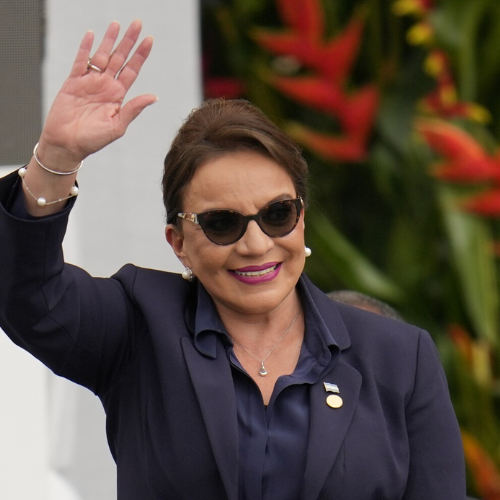Honduran President Xiomara Castro has reversed her decision to end the long-standing extradition treaty with the United States. Just months after announcing plans to cancel the agreement, she now says it will remain in place.
Castro made the announcement on X, explaining that she had reached an agreement with the US government to continue extraditions under “necessary safeguards” for Honduras. The shift comes after direct talks between Honduran officials and the White House, covering key issues like migration, military cooperation, trade agreements, and investment in Honduran infrastructure.
The decision is a sharp U-turn from her previous stance. In August, Castro declared she would end the treaty following criticism from the US ambassador over a meeting between Honduran military officials and Venezuelan authorities accused of drug trafficking. That statement angered the Honduran government, which saw it as foreign interference.
But now, just a few months later, Castro has agreed to keep the treaty in place, raising questions about what led to this dramatic shift.
What Changed?
While Castro has not provided a detailed explanation for her decision, several political and diplomatic developments may have influenced it.
Zelenskyy Warns US Support Is Key to Stopping Russia’s NATO Aggression
Honduran Foreign Minister Eduardo Enrique Reina stated that the extradition treaty was part of larger negotiations with the US, involving discussions on five key areas:
- Migration policies
- Military cooperation
- Free trade agreements
- Investment in Honduran infrastructure
- Extradition of criminals
Reina emphasized that Honduras wanted “normal safeguards” in place to ensure that extradition cases were handled fairly and not used for political purposes. However, he did not specify what new protections had been added to the treaty.
The reversal also comes at a time when the US has been increasing pressure on Central and South American nations regarding migration and security policies.
For example:
- In Mexico, the government deployed 10,000 troops to its northern border after the US threatened 25% tariffs on Mexican exports.
- In Colombia, leftist President Gustavo Petro initially refused to accept deportation flights of Colombian migrants but backed down after the Trump administration threatened economic sanctions.
These examples suggest that Honduras may have faced similar pressure behind closed doors.
Another key factor is public reaction to a corruption scandal involving a high-profile Honduran politician.
Shortly after Castro announced her plan to end the treaty, a video surfaced showing Carlos Zelaya, the brother of former Honduran President Manuel Zelaya, appearing to negotiate a bribe with drug traffickers.
The video outraged many Hondurans, leading to accusations that the real reason behind ending the treaty was to protect political allies and family members from extradition to the US.
Castro’s brother-in-law’s connection to the scandal put immense pressure on her administration. Some political analysts believe the backlash forced her to reconsider her decision and avoid a deeper crisis.
Political Fallout and Public Response
The reversal has drawn mixed reactions from both politicians and the public.
Some see it as a pragmatic move to maintain good diplomatic and economic relations with the US. Honduras relies heavily on trade with the US, and losing economic support could have severe consequences.
Russia Frees U.S. Teacher Marc Fogel After Secret Talks
Others remain skeptical, questioning whether this decision was truly about national interests or if it was made under US pressure. Critics argue that Castro’s handling of the situation has weakened trust in her leadership, as she initially portrayed the treaty’s cancellation as a matter of national sovereignty but later reversed course without a clear explanation.
Additionally, concerns remain about whether the extradition process will truly remain fair or if it could still be used to target political rivals while protecting allies.
Foreign Minister Reina defended the decision, insisting that the government’s priority is to ensure democracy and protect upcoming elections, where the military plays a key role. However, his statement has only fueled more debate, as some wonder whether the treaty could be used to influence political outcomes.
Despite Castro’s insistence that the treaty will now include “important safeguards,” many questions remain unanswered about what truly led to this dramatic reversal and how it will impact Honduras’ relationship with the US moving forward.


